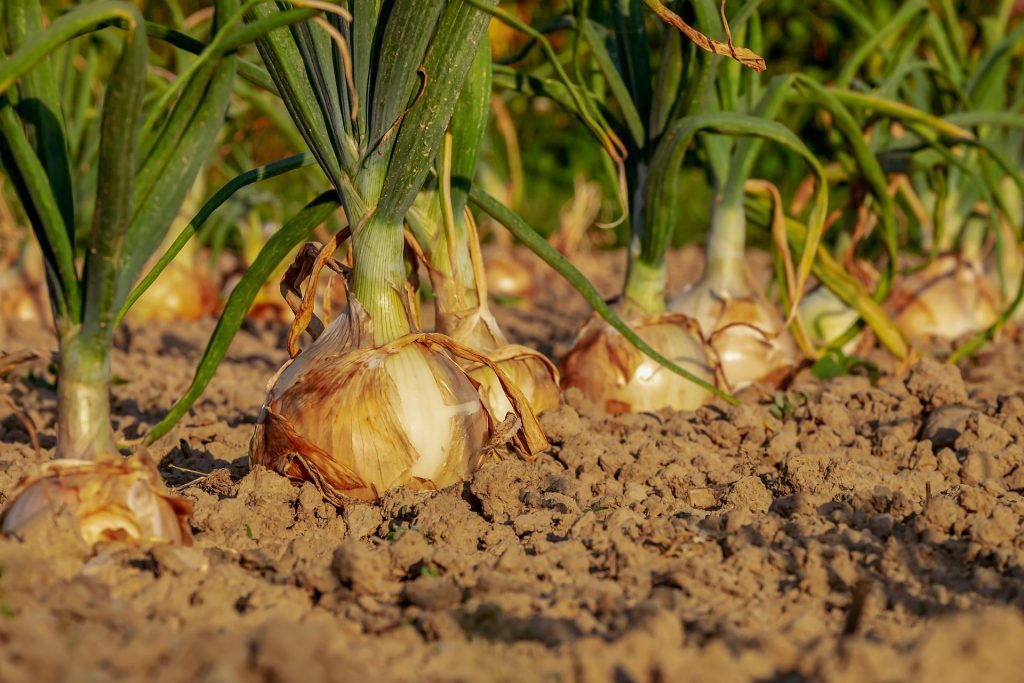
Are you in need of in-depth knowledge on onion and garlic production? If yes, we are a call away. Contact us for: Onion seedlings, Garlic seedlings, Germinated garlic cloves, Farm planning services, Soil testing, training on onion and garlic growing, Drip irrigation installation and maintenance, Agronomic support, Onion and Garlic value pack and Farm management. For free consultation, placing orders or booking a visit with an agronomist, please contact us via Call or what’s app +254703982228, Email: Info@oniondoctor.co.ke. You can also check out our social media handles for daily updates on TikTok: https://www.tiktok.com/@oniondoctorke?_t=ZM-8wmsTu0qumO&_r=1 Instagram: https://www.instagram.com/oniondoctorke?igsh=MTVoaHF3aWUydTJzaQ==Facebook:https://www.facebook.com/share/16SwgYn2dG/ Youtube:https://youtube.com/@oniondoctorke?si=u5Jnd-r0qU9UDYqL and Twitter: https://x.com/OnionDoctorKe?t=FR3JXlS_oN1vjjUgAtfyzg&s=09
Kenya is home to two major types of onions: bulb onions and spring onions. These versatile crops thrive in various regions, including Karatina, Oloitoktok, Naivasha, Kieni, Emali, and Mai Mahiu. With the right farming techniques, you can maximize yields and profits year-round. Onion Doctor is here to guide you on your onion farming journey, from soil preparation to harvest.
Bulb Onions: Best Harvest Seasons and Profitability
Bulb onions take 3 to 4 months to mature, and farmers who grow them during the short rains can harvest between January and February. This period is highly lucrative, as there is low supply from neighboring Tanzania. Farmers who plan to harvest after the long rains in March enjoy increased onion prices, ensuring great profit margins.
Spring Onions: Easy to Grow, Nutrient-Packed
Spring onions, on the other hand, are incredibly easy to grow—even in your kitchen garden. Frequently used in salads and soups, they boast health benefits like lowering blood sugar and reducing blood pressure and cholesterol. Their short growth period and multiple uses make them a popular choice for home and commercial growers alike.
Bulb vs. Spring Onions: Popularity and Market Demand
Bulb onions tend to be more popular than spring onions, primarily due to their longer shelf life and sweet taste. In Kenya, two key varieties dominate the market:
- Tanzanian Variety: Small, thin, firmly layered, and highly pungent.
- Kenyan Variety: Larger, loosely held, and locally grown in favorable regions.
Ideal Conditions for Onion Farming
Onions flourish in well-drained, fertile, sandy loam soils with a pH between 5.8 and 6.8. To ensure year-round growth, irrigation systems are essential. Conducting soil tests with accredited labs is recommended to optimize growth.
For temperature control, especially in hot areas like Ukambani and coastal regions, greenhouses and drip irrigation systems are necessary. These systems help regulate temperature and water supply for optimal yields. Onion Doctor offers expert guidance on setting up these systems to ensure your onions thrive, even in challenging climates.
Fertilizer and Seedling Requirements
To grow onions, you’ll need land, DAP fertilizer, and seedlings. One kilogram of seedlings is sufficient for one acre, and 20 grams of DAP fertilizer should be applied per square meter.
Popular hybrid varieties in Kenya include Red Coach F1 and Malbec F1, with Red Coach F1 being favored for its high yield and excellent market suitability.
Common Challenges in Onion Farming
- Excess Rain or Watering: Excessive water can lead to waterlogged crops and root diseases. Drip irrigation is the best option for onions, as overhead irrigation may cause fungal diseases.
- Diseases: Common onion diseases include Downy Mildew, Bacterial Soft Rot, Pink/White Root, Botrytis, and Rust. Regular fungicide treatments are crucial.
- Pests: Maggots, thrips, nematodes, and leaf miners can damage crops. Use high-quality pesticides to manage infestations.
- Weeds: Weeds can be a significant issue. Herbicides like Commander 240EC are effective at controlling weeds 10-14 days after transplanting, right through to harvest.
Harvesting Onions for Optimal Yields
The dry season is the best time to harvest onions. For bulb onions, they are ready when they form a shiny membrane or when the foliage begins to wither. Spring onions should be harvested when they are 15 centimeters tall and 1.5 centimeters thick. After harvesting, dry the onions in the sun before storage to maintain quality.
Onion Doctor: Your Partner in Profitable Farming
At Onion Doctor, we are committed to helping smallholder farmers across Africa grow profitable onion and garlic crops. Our services include high-quality onion and garlic seedlings, soil testing, spray and feeding programs, transplanting supervision, and agronomic visits. We also offer market linkages to ensure you get the best price for your produce. Whether you are farming on a large scale or just getting started, Onion Doctor provides the support you need to succeed.